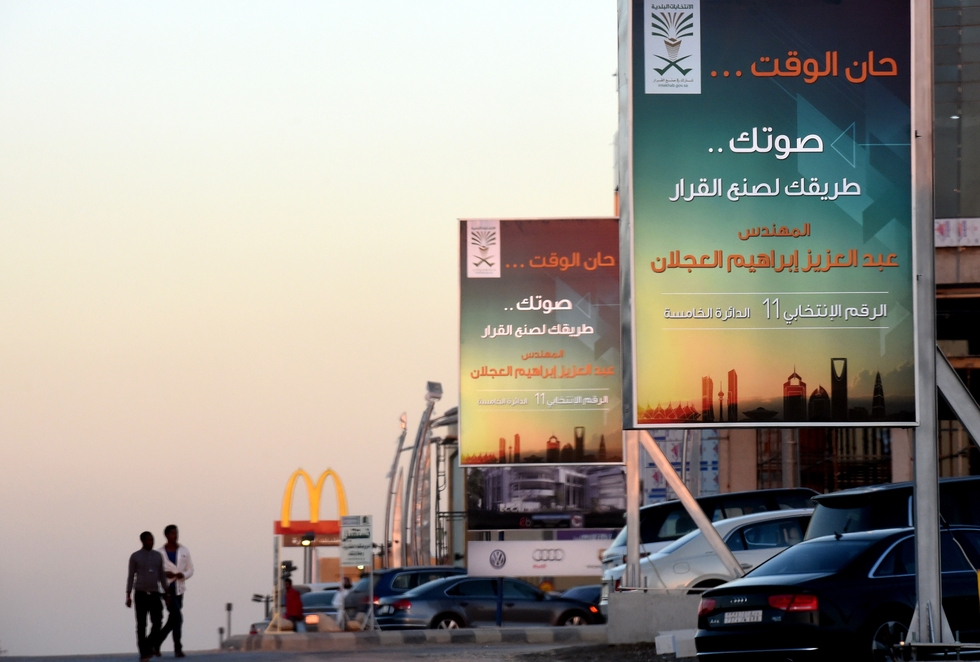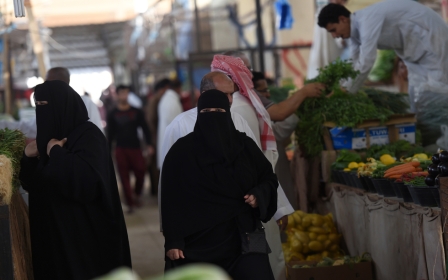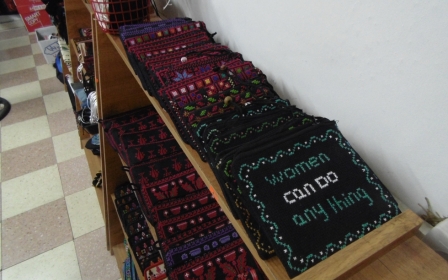First Saudi vote campaign for women enters final day

Saudi Arabia's first election campaign open to women ends on Thursday but voters - who will include women for the first time as well - see little chance for female candidates.
More than 900 women, along with some 6,000 men, are seeking seats on 284 municipal councils whose powers are restricted to local affairs including streets, public gardens and rubbish collection.
The vote has been hailed as a small step forward in the conservative Islamic kingdom, one of the most restrictive countries in the world for women and the last country where only men had been allowed to vote.
But many voters said tribal allegiances - rather than a candidate's gender - would be a big factor in the ballot.
Um Mohammed, a 47-year-old woman living near the Kuwaiti border, said her daughters helped organise the campaign of a female candidate, but she herself would back a man.
"I am voting for this candidate because he is from our tribe and he will ensure our rights. He also has a good personality and we have never heard anything negative about him," she said.
Her husband had dinner with the candidate at his campaign tent, helping to confirm their choice, she said.
Such tents - traditional male gathering places in Saudi Arabia that can be as large as houses - have been a common way for candidates to get their message across during Saudi municipal elections.
Ballots for local councils have taken place twice before, in 2005 and 2011, with only male candidates and voters.
'Winning by running'
Ruled for decades by the al-Saud royal family of King Salman, oil-rich Saudi Arabia has no elected legislature and has faced intense western scrutiny over its rights record.
Um Mohammed may have chosen her candidate but whether she makes it to the polling station on Saturday is another matter.
Unable to drive and with no taxis in her community, Um Mohammed said she can only vote if her husband takes her, or if a group of women rent a car and driver together.
Saudi Arabia is the only country in the world where women are not allowed to drive. They must also cover themselves in black from head-to-toe in public and require permission from male family members to travel, work or marry.
There is a strict separation of sexes, which applies to election facilities as well as elsewhere like restaurants.
A slow expansion of women's rights began under the late king Abdullah, Salman's predecessor who died in January.
Many have welcomed female participation in the ballot as a step forward for women's rights.
Amal Badreldin, a female pediatrician running in central Riyadh, expressed satisfaction with her campaign even though she expects to lose.
"I ran everything by myself," she said. "I think I have done the winning by running."
For others, the campaign has been a struggle, with some women candidates barred from taking part and others withdrawing under pressure.
'He's a good man'
A northeastern woman, who asked not to be named, said the female candidate she wanted to vote for pulled out of the election after local Islamic scholars objected.
"She withdrew after the scholars said it's forbidden for a woman to run in the elections," said the woman, a teacher.
"I don't believe the female candidates will be given much power even if they win."
A male voter in the eastern city of Hafr al-Batin said it was difficult to know whether to support a woman candidate as men have been unable to meet them or see their faces.
"You have to work extra hard to understand" a female candidate, he said, while he could share food or coffee offered by male contenders.
"I don't think any man here would vote for a woman," the man said, adding that he will cast his ballot for a fellow tribesman.
"Even without the campaign I already know he's a good man," he said, declining to be named.
A western diplomat has said "it will be a huge positive surprise" if any women are actually elected on Saturday.
Still, he said he expects some will be appointed as only two-thirds of council seats are elected.
The campaign has been low key, with rules preventing photographs of candidates applied to both men and women.
Omar Mohammed, a 49-year-old accountant who will vote in the Red Sea city of Jeddah, said he had not come across any female campaigners.
"I will probably vote for one of the men," he said.
New MEE newsletter: Jerusalem Dispatch
Sign up to get the latest insights and analysis on Israel-Palestine, alongside Turkey Unpacked and other MEE newsletters
Middle East Eye delivers independent and unrivalled coverage and analysis of the Middle East, North Africa and beyond. To learn more about republishing this content and the associated fees, please fill out this form. More about MEE can be found here.




